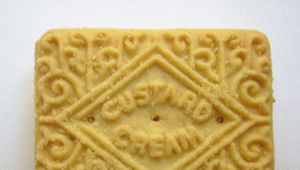Master storyteller he might be but Dickens really ballsed up A Christmas Carol. It starts well enough – the tale of a sensible businessman living within his means – but then he ruins the ending. Trouble was Dickens didn’t understand the first thing about capitalism.
It’s a shame as Scrooge is the kind of wealth creator this country needs. His aggressive takeover of Fezziwig and Co. is a brilliant corporate raid. Under Scrooge and Marley’s guidance, a poorly run family business becomes a flourishing enterprise. The workforce is decruited, leaving only a single clerk; by giving Bob Cratchett half a day off a year, Scrooge clearly grasps the importance of a flexible labour market. How else can we compete in the global economy? He even realises that Britain’s future lies in financial services. Scrooge and Marley’s business consists of lending to the desperate at peak rates. Though there’s vague talk of a warehouse, they don’t seem to make anything. Cash is moved from A to B and then to A again in a kind of monetary sonata. Manufacturing is so German.
But then Scrooge loses it. One night on the piss, and he’s distributing poultry to all and sundry. Pay is raised without any increase in productivity. Mrs Dilber, the charwoman, is given a 500% rise (only CEOs are entitled to that kind of remuneration package) and as for his treatment of the Cratchetts, has he forgotten that mollycoddling the lower orders encourages laziness? Before you know it, the Cratchetts will be sitting all day in their nightshirts eating the Victorian equivalent of Doritos. Fortunately, Mr Duncan Smith’s welfare reforms are teaching the Tiny Tims of today to stand on their own two feet - so to speak.
More...
I think the story would work better in reverse. At the beginning of the book, Scrooge would be a do-gooding businessman about to go under. Turkeys are tossed around regardless of the shareholders. Holidays border on the Gallic. Then on Christmas Eve, up pops the Ghost of Economic Future. He takes Scrooge on a whirlwind tour of the best modern business practices: outsourcing, rationalising, leveraging, sheltering.
“Are these the shadows of the things that Will be, or are they shadows of things that May be, only?" asks Scrooge excitedly as he leaves a call centre in Glasgow. Scrooge wakes up on Christmas Day a new man. The butcher’s account is cancelled and Mrs Dilber is put on a zero hours contract. Bob Cratchett gets his marching orders and, thanks to Victorian light-touch regulation, there’s no messy industrial tribunal. Ebenezer’s rightsizing ensures Scrooge and Marley (Cayman Islands) many profitable years ahead. After all, what good is a bankrupt company to its employees?
I’ll leave Dickens to write a proper ending: “Scrooge became as good a mover and shaker as the good old city knew … Some people laughed to see the alteration in him, but he let them laugh, as he now spent most of Christmas skiing in Klosters.
And so, as Tiny Tim observed, God Help Us, Every One!”



